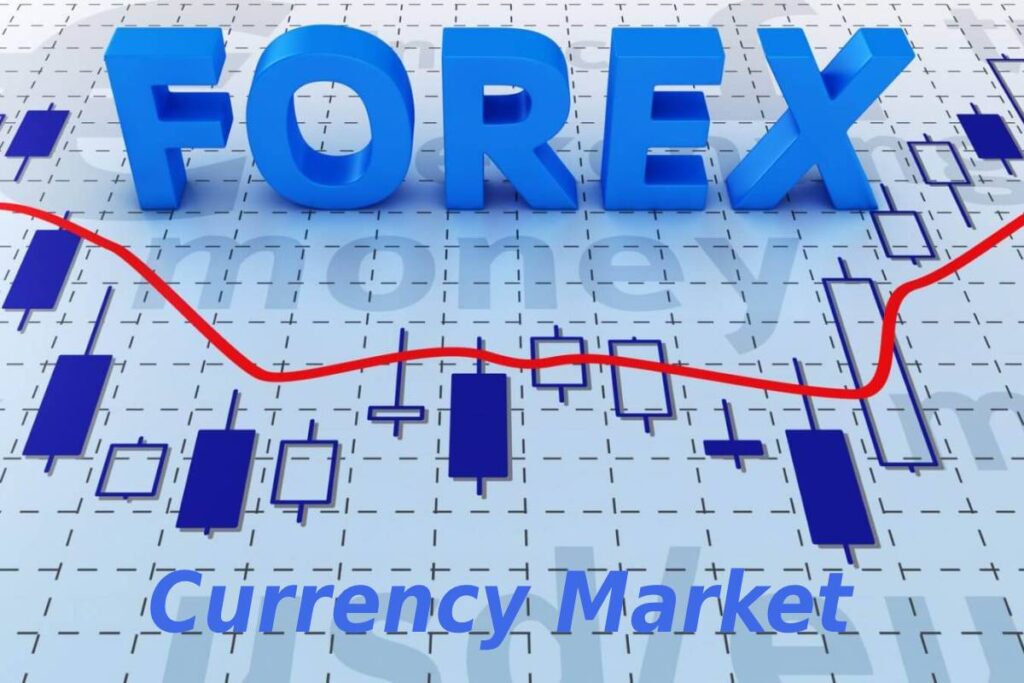Table of Contents
What is FOREX Currency Market?
- FOREX Currency Market is the foreign exchange market characterized by free currency exchange.
- Its main objective is to facilitate international trade and our investment.
- It is also known as FOREX (Foreign Exchange, which translates as the foreign currency exchange).
- In physical or virtual space, the price of each currency called the exchange rate is set.
- This quote depends exclusively on the supply and demand of the participants.
FOREX Currency Market Benefits
- We should note that only cash is traded in the exchange market.
- On the contrary, deposits registered in financial institutions or documents that grant the right to collect an amount of money are also marketed.
- This market helps make safer purchases and sales of companies from different countries without sharing the same currency.
- For example, a US company can import European products and pay in euros even though this company’s income is in dollars.
- The currency converter is used to calculate the accurate value of one currency concerning another.
Most common currency market instruments
1. Foreign currency spot operations
- These are the purchase and sale of foreign currency in which the time elapses does not exceed more than two or three business days.
2. Forward currency transactions
- These are currency purchase and sale transactions.
- The amount and price of the currency are set at the time of contracting.
- But the exact delivery is carried out at a time specified in the contract.
- Term operations represent 70-75% of the total operations carried out.
3. Financial derivatives
There are five within products:
Financial Option Forex (Foreign Exchange options)
- A contract gives us the right (not obligation) to exchange one currency for a different at a specified rate on a specific date.
Futures Forex (Foreign Exchange Futures)
- Firstly, it exchange currencies at a specific date and under an agreement rate.
- Secondly, non-negotiated currency contract (non-deliverable forwards)
- Lastly, a contract generally negotiates trans-territory, which is settling on different currencies.
Future futures (outright forward)
- It is an exchange of one currency for another at the rate of a predetermines future day.
Swap FOREX (foreign exchange swaps)
- It is a contract characterizes by the peculiarity of buying and selling a lot of currency.
- We can resell and buy back the money at a certain rate on a specific date.
Characteristics of the currency market
Among the significant characteristics of the FOREX market are:
1. Large scale
- Many currency exchange operations reports around the world, configuring what considers the largest financial market.
2. Variety
- Many actors participate, from international entities to natural persons who come to an exchange house.
- Also, a high range of financial assets offers: Forwards, options, among others.
3. Agility
- It is easy to communicate the applicant with the offeror.
- We can make transactions through various means, such as the bank window, system, or through a computer.
4. Utility
- It allows everyone to satisfy the need of the users and agents for a particular currency.
- It is essential, for example, if the parties that have concluded a contract are not in the same country.
- In that case, the buyer will typically need to purchase foreign currency.
Check Out: Seka Moving – NYC Moving Company: https://g.page/SekaMovingNYC?share
Foreign exchange institutions
The main participants in the foreign exchange market are:
1. Commercial banks
- These financial intermediaries allow their clients to trade currencies.
- Also, they buy and sell notes and coins in the administration of their deposits, seeking to maintain, like a percentage in dollars.
2. Central banks
- Firstly, they are the significant monetary authorities of every country.
- Secondly, these entities intervene to avoid fluctuations in the exchange rate.
- For this, we have monetary policy instruments such as certificates of deposit.
- And also, see the relationship between monetary policy and the foreign exchange market.
3. Companies
- They go to the foreign exchange market to buy and sell foreign currency.
- For example, they may be importers who need to purchase foreign currency to pay their suppliers.
4. Exchange houses
- They allow the public to exchange part of their capital from one currency to another.
- And also, they carry out cash transactions.
Factors why exchange rates may vary
1. Economic
- Inflation (also underlying inflation ), public, deficit, GDP, unemployment, CPI, etc.
2. Politicians
- Monetary policy of a country
3. Psychological
- Due to rumors the latter seems to be of less importance, but it is not.
- For example: on 04/23/2013, a story of an attack on the White House via Twitter caused the Wall Street stock market to shake for a few minutes, and the indices fell more than 1%.


